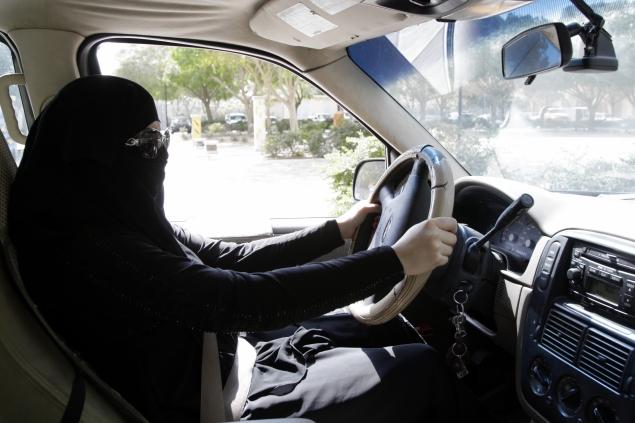Current Situation
Saudi women took to the streets in cars on Saturday October 26th in order to defy the kingdom’s long-standing ban on women driving. The campaign, called “Women2Drive,” was launched in 2011 after being inspired by women in Egypt, Yemen, Syria and Libya. They took an active role in fighting for freedom among their male counterparts during the Arab Spring.
As to why Saudi women are banned from driving in the first place, Saudi authorities often retort that society is simply not ready to have female drivers. It has taken on this rhetorical persona as the ban is not mandated by Sharia law, the Islamic legal code which serves as the foundation for most Saudi law. While the ban may not be the most restrictive form of discrimination that Saudi women face, it has become symbolic of the much deeper oppression that is prevalent (women who have taken up the cause liken it to the significance of a bus seat to Rosa Parks and other African-Americans in the 1950s).
The Saudi Response
In 2011, which was the last time that Saudi women actively got behind the wheel, they met active resistance. Many were stopped by traffic police and their male guardians were forced to sign pledges to ensure that they would never drive again. One woman was even sentenced to 10 lashings (which was later overturned by an appeals court).
Saudi authorities issued a pre-emptive response to Saturday’s activities. The kingdom’s Interior Ministry spokesman, Maj. Gen. Mansour Al-Turki stated that “all violations will be dealt with – whether demonstrations or women driving.” Some women even claimed that they received threatening phone calls from the Ministry’s representatives, warning them against driving on or after Saturday. The nation’s most senior religious authority, the Grand Mufti, declared a fatwa (a religious edict) against female drivers because it would lead women “to temptation” and thus increase the chances for “social chaos.” The religious order has even resorted to contending that driving will be medically detrimental for women, as it damages the pelvis and ovaries.
Have Saudi Women’s Rights Progressed or Deteriorated?
While there have been a few steps forward, the rights of Saudi women lag far behind those of women on a global scale. Women are now allowed to both vote and run as candidates in municipal elections, and hold careers in various sectors without approval from their male guardians. Additionally, the king has appointed 30 women to his 150-member senior advisory council, and a draft law that criminalizes domestic abuse was passed in September of this year. However, on a more general basis, Saudi women still lack autonomy in their day-to-day lives. This is best exemplified by the guardianship system, in which a female requires authorization from a male guardian in pursuing higher education, marriage, travelling, government business, and medical procedures.
The Saudi government has ratified the UN Convention on All Forms of Discrimination Against Women, which prohibits enforcing any detrimental policies to women. So those ruling the country either believe that the aforementioned restrictions are in accordance with the UN Convention, or it holds enough leverage to be able to sidestep these regulations; my bet is on the latter. Hopefully, with more active resistance akin to “Women2Drive,” Saudi women will be able to enjoy the basic autonomy that many women retain all over the world.




